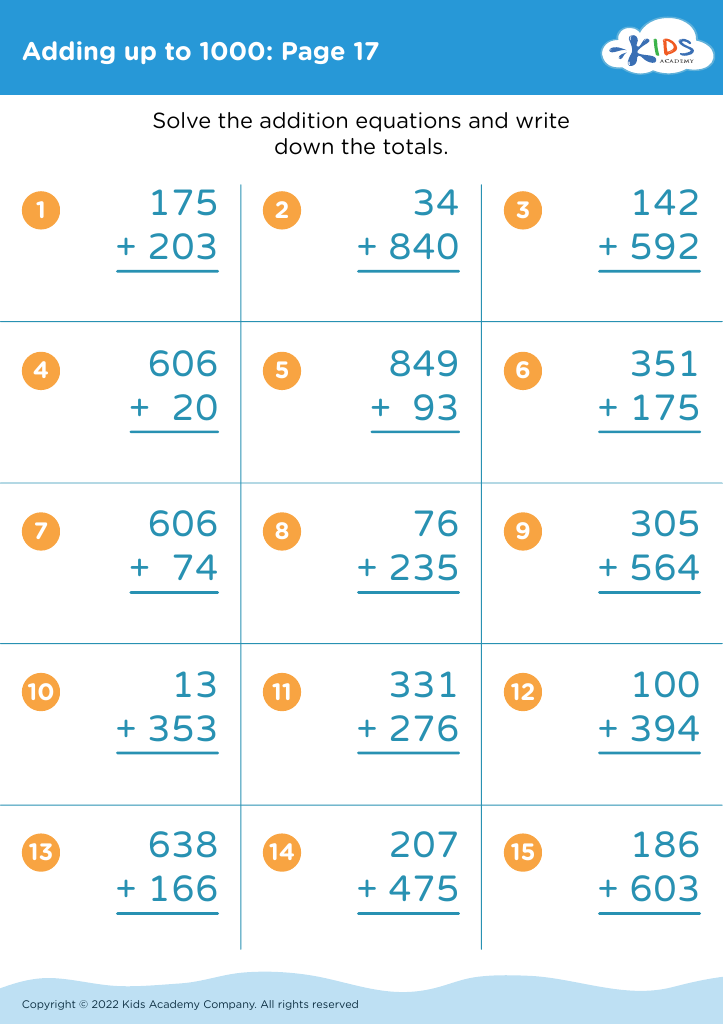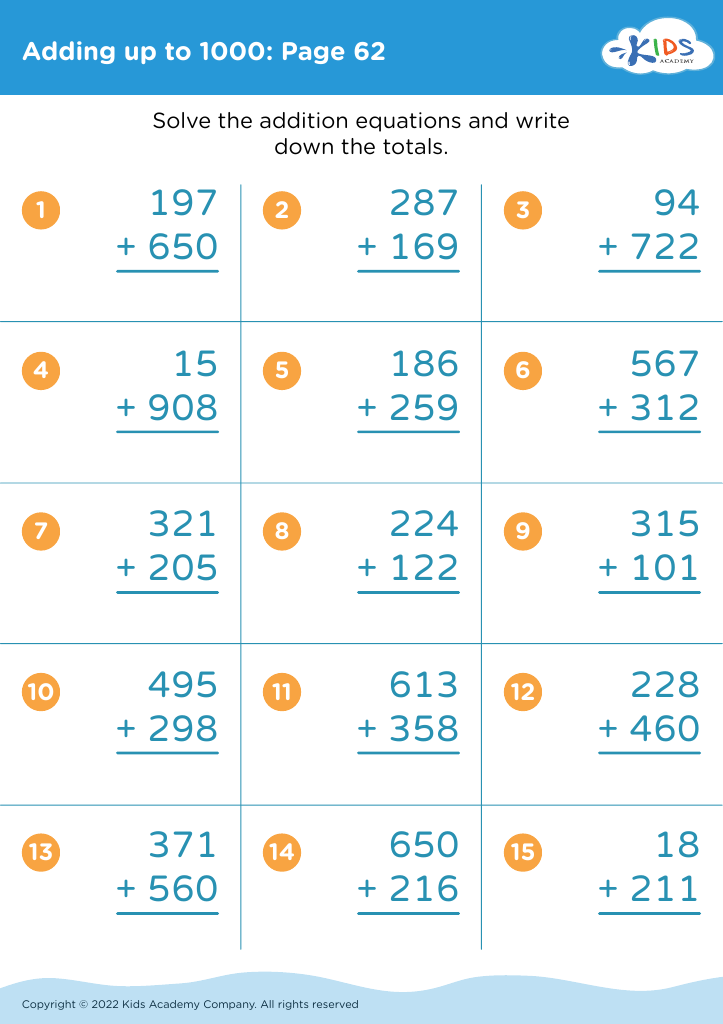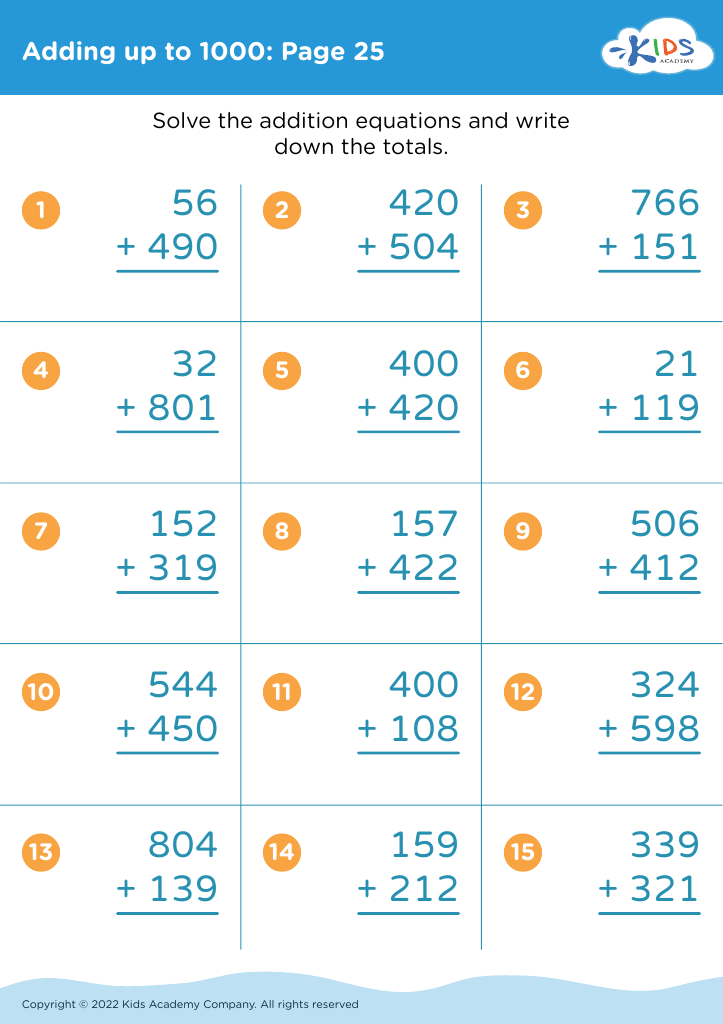Fraction comparison Adding up to 1000 Misc Worksheets for Ages 7-9
6 filtered results
-
From - To
Discover engaging "Fraction Comparison" worksheets designed for children aged 7-9, focusing on enhancing their math skills in a fun and interactive way. These worksheets provide various activities that challenge students to compare and contrast different fractions, helping them grasp core concepts of addition and ratio while working up to 1000. Ideal for both classroom settings and at-home practice, our resources are tailored to reinforce learning through engaging visuals and interactive exercises. Watch your young learners build confidence in their mathematical abilities as they explore fractions and improve their overall numerical understanding. Perfect for educators and parents seeking quality learning materials!
Understanding fraction comparison is critical for children aged 7-9 as it lays the foundation for more advanced mathematical concepts they will encounter in later grades. When kids learn to compare fractions, they develop essential problem-solving and critical-thinking skills that are applicable not just in math, but in everyday situations.
Parents and teachers should care because mastery of fraction comparison can boost children's confidence in their mathematical abilities. This skill also enhances their understanding of ratios and proportions, which frequently appear in real-world contexts, such as cooking and budgeting.
Additionally, fractions often manifest in standardized tests; kids proficient in comparing fractions will perform better, leading to improved academic outcomes. At this age, children are naturally curious, making it a perfect time to introduce engaging activities related to fractions, encouraging a love for math.
Moreover, developing a strong grasp of fractions prepares students for the complexities of addition and subtraction of fractions, reinforcing a solid numerical foundation essential for academic success. Engaging parents in their children’s learning journey can foster supportive home environments, enhancing educational experiences and outcomes. Overall, understanding fraction comparison creates opportunities for better problem-solving and increases overall numeracy skills.
















